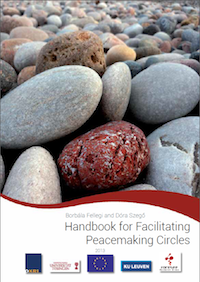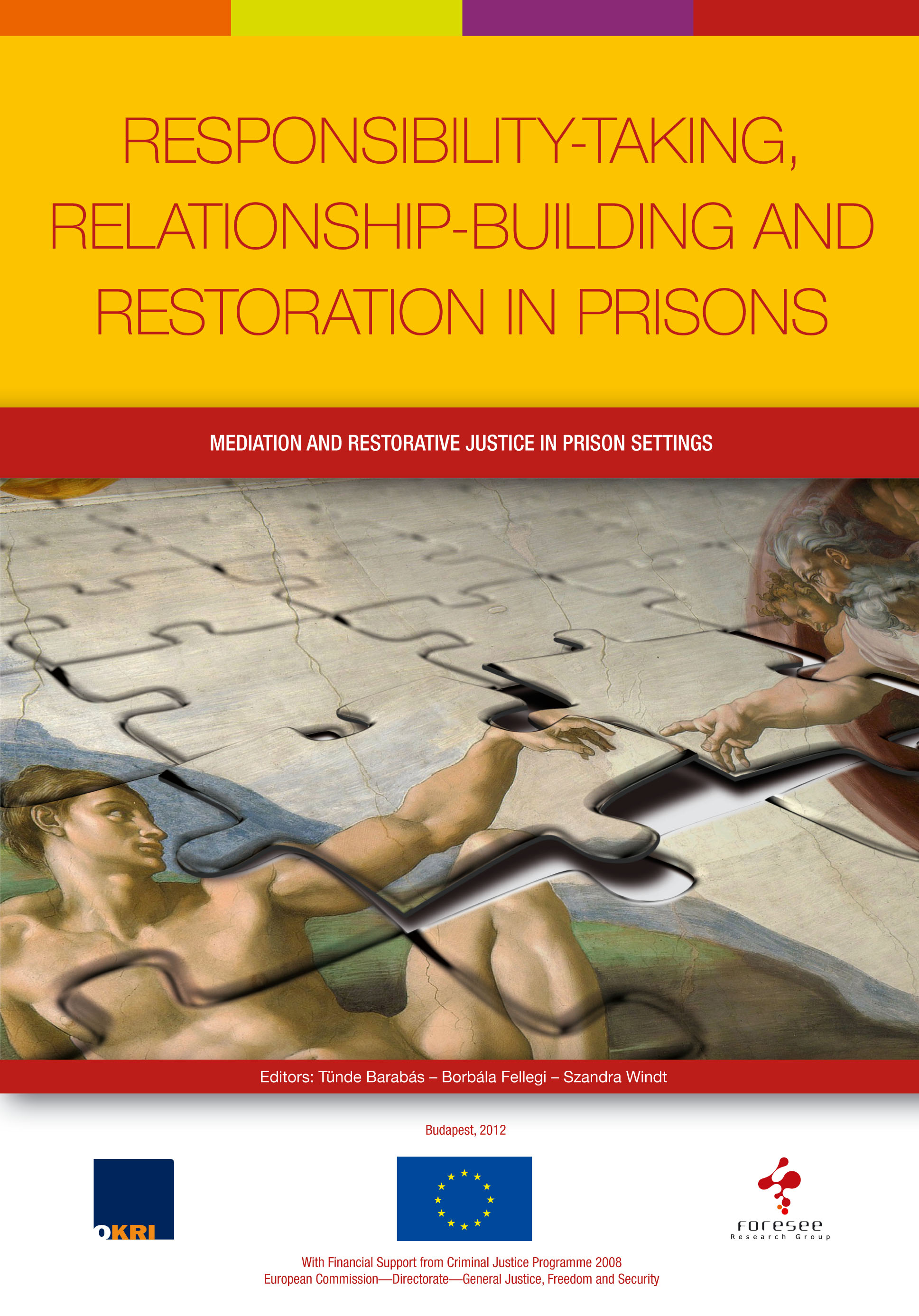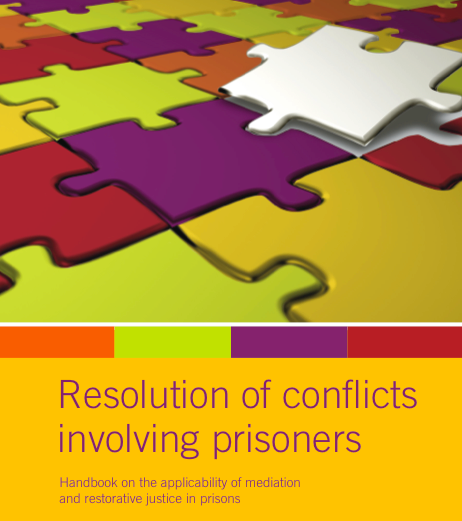
Projects
Together with its interdisciplinary network of professionals, Foresee Research Group participates in and actively facilitates projects and programmes realizing its mission and objectives. Independently or as a consortium member, Foresee can effectively support individual and community initiatives and brings projects to fruition in Hungary or abroad. In the course of planning and executing projects, Foresee always supports building extensive partnerships with its clients and cooperating organizations. We believe that effective answers to the problems of our society require unity and continuous network building between multiple professions and institutions.
Our partners and target groups are:
1. members of underprivileged groups
2. local communities
3. NGO workers
4. researchers and academics
5. practitioners of the judicial, social welfare and education system
6. policy makers and civil servants
7. representative of international communities (European Union, Council Of the European Union, United Nations, representatives of international research and cooperation programs)
2013. 12. 03
|
This Handbook is the first manual that provides guidance to how to facilitate peacemaking circles in the European context, especially in continental legal systems.
The full text of the Handbook can be freely downloaded in pdf format from this link. This publication is... |
2013. 06. 13
|
Facing the Presidency of the Council of the European Union in 2011, Hungary, and more closely the Hungarian Ministry of Interior was interested in strengthening the cooperation among the Member States of the region and enabling the national experts to exchange experiences in the field of crime prevention– in order to explore the potential of restorative methods for building safer communities. The GPCCM-REG project (“Good Practices of Community Conflict Management in the Central Eastern European Region”, project no. JLS/2010/ISEC/FP/C2 4000001469) was implemented between January 2011 and June 2013 in 5 Member... |
2013. 06. 03
|
The final meeting of the lifelong learning Grundtvig project REDICT (’Resolving Disputes in the 21th Century’) has been organised by Foresee Research Group from 13th to 15th May 2013 in Budapest. The report was written by: Eszter Posch and Kitti Salamon On 13th May afternoon the partners attended a Danube boat trip, after which they closed the day with a ‘meeting-opener’ diner that has become a project ritual. On the next day Foresee organised an international conference in partnership with the National Institute of Criminology including 3... |
2013. 06. 03
|
“New solution comes to life when traditional ones seem helpless with handling problems” Klára Kerezsi. Foresee Research Group in partnership with the National Institute of Criminology organised the conference, entitled “The Face Behind the Hate” at the National Institute of Criminology (OKRI) in Budapest on 14th May 2013.
The report was written by: Erika Mercz
“This workshop intended to make a link between professionals dealing with peaceful conflict resolution techniques, on the one hand, and with the issue of radicalisation and hate crimes, on the other. During the interactive day the attempt was to think loudly and collectively on the above-raised... |
2013. 03. 07
|
The second international conference of Grundtvig REDICT project was organised on 12-13th February 2013 in Presov, which was the fourth meeting of the program. The main lines of the event were workshops for professionals and agreement between partners about the next tasks of the project. The organiser was the Slovakian Greek-Catholic Faculty of the University of Presov. Participants of the project meeting were: Slavka Karkosková and Gabriel... |
2012. 11. 05
|
The general aims of the EU sponsored Grundtvig REDICT project are to facilitate adult learning, professional exchange and networking in the realm of ADR, to provide an overview of the status quo, challenges and possibilities of ADR in the participating countries and to help experts create an efficient promotion of ADR methods for the general public and for related professions. The third international meeting of the Grundtvig Learning Partnership EU Project took place in the beautiful city of Rome hosted by Marco Calabrese, Francesca Corradi and Cinzia Verucci representing the |
2012. 04. 26
|
We are happy to inform you about a new exciting project that has started on 1 February, 2012 bearing the name |
2012. 04. 26
|
The second GRUNDTVIG REDICT meeting took place in Křtiny on the 20-21 of March 2012, with the goal to work out the final outcome of the Grundtvig Project that can succesfully raise awareness and spread information about alternative conflict resolution to the public and professionals in related fields. The representatives of the partner organisations were as follows: |
2013. 06. 28
|
The EU funded project (JUST/2010/JPEN/AG/1609), entitled ‘How can Peacemaking Circles be implemented in countries governed by the “principle of legality?” aims to determine the potential of peacemaking circles as a European model and to test and research the implementation of this method in the justice system of three European countries: Germany, Belgium and Hungary from September 2011 until May 2013, under the leadership of the University of Tübingen.
The piloting of peacemaking circles in Hungary takes place in four counties (Békés, Szabolcs-Szatmár-Bereg, Hajdú-Bihar and Baranya) in cooperation with the local offices of justice, in the selected and eligible criminal cases. The leading partner of the Hungarian consortium is the |
2011. 11. 14
|
As part of REDICT (Resolving Disputes in twenty-first CenTury) project the Czech project leaders in cooperation with Hungarian, Slovak, Lithuanian and Italian partners agreed upon organizing four personal meetings during the project's two year lifespan starting at the fall of 2011. The reason for this was to get to know each other's cultural heritage and habits, and thus to forward the main aim of the project: broadening the knowledge of the general public and the related professions considering alternative conflict management.
The first meeting took place in Vilnius, the representatives of the partner organisations were as follows: - The Greek Catholic Faculty of the... |
2011. 08. 23
|
Foresee is partnering in the project entitled “Resolving Disputes in the 21st Century” funded by the EU's Lifelong Programme "Grundtvig"
One of Foresee’s partners, the European Institute of Reconciliation, Mediation and Arbitration (ESI) won an EU application, and with Foresee’s and other’s partnership will be carrying out its project in the framework of the Grundtvig EU-Project. You can read more on the project below. Foresee’s special role within the project’s aim will be to focus on the potential of alternative methods of solving disputes in community-related conflicts (such as Roma-non-Roma conflicts) and in the crime prevention and criminal justice field (based on the restorative justice approach). |
2011. 06. 16
|
Community conflict resolution in school – Foresee Research Group’s KLIMA+ (Climate Positive) programme provides a film & an adjoining educational material. The programme closed at the end of May 2011 with its deliverables helps adult & peer moderators working in the field of school conflict resolution. The two and a half month long project supported by the Hungarian Ministry of Internal Affairs and the National Crime Prevention Board was concluded by the cooperation of nine partner organizations. The project’s focus is a 27 minute short film (Intertwined) and an adjoining educational training material, developed with the direct involvement of students, teachers and various educational support professionals. The film presents... |
2009. 10. 12
|
The "Civil Strategies in Magdolna district" project coordinated by the Green Youth Association (ZöFi) aims to harmonize the planned activities of civil organizations involved in the Magdolna district's Social City-rehabilitation Program, in order to allow them to work together efficiently in a long term with different profiles but for the same purpose. The main goal beyond forming real partnership is the integration of the disadvantaged Magdolna-district into Budapest's social-cultural life; strengthening the local community, providing information about the civil organizations' services, promoting inhabitants in changing their living conditions... |
2009. 10. 12
|
Within PACR model program Foresee carries out a diagnostic and follow-up research in PACR partner schools. Prior to and following the local trainings activities aim to map out conflict management approach, methods, processes of schools and to evaluate the success of implementation of PACR program. In cooperation with the partner schools and following the previous cross-checks of concept and research schedule conflicts (physical and verbal aggression; theft; abuse; excommunication; racism etc.) and their reasons (family; peers; media; education and child security systems) are surveyed through... |
2009. 09. 22
|
Between 21st and 27th of September 2009 in 17 countries – including Hungary- several hundreds of events arranged by civil and local organizations drew attention to the importance of civil involvement and local acts. Youth was one of the key topics of this year series of events. The „Children In Live” World café-talking organized by Foresee Research Group was the closing programme of the week. Subjects like self-esteem, involvement and possibilities of realization of democracy in schools were discussed in small... |


























